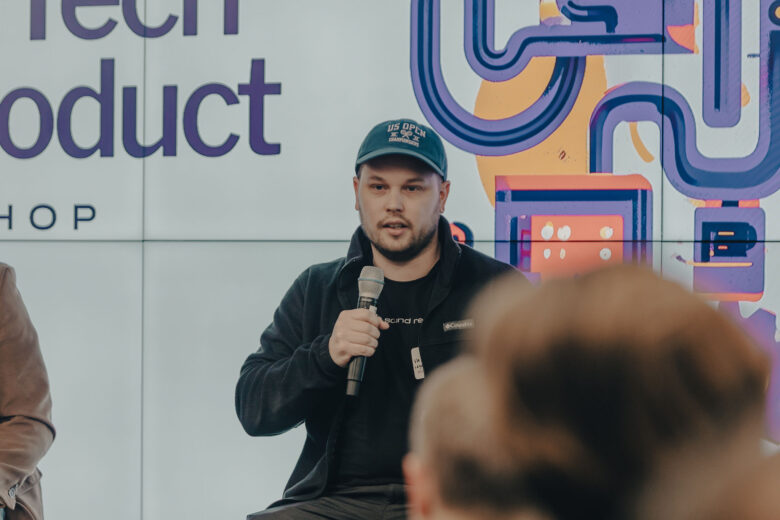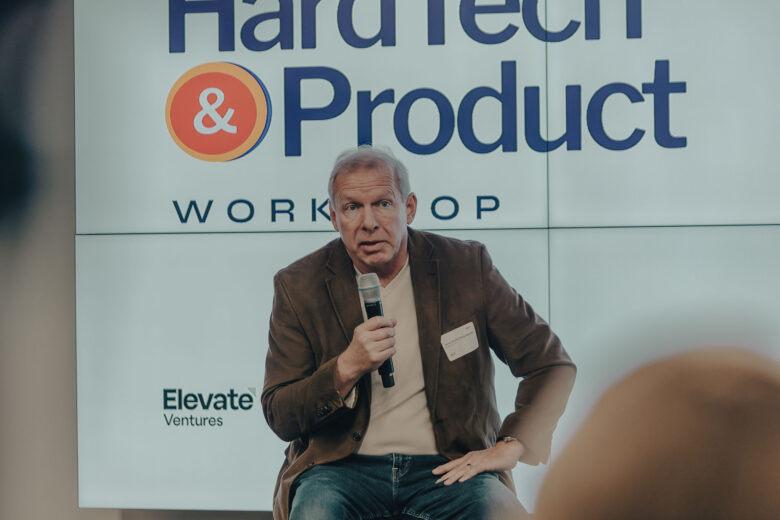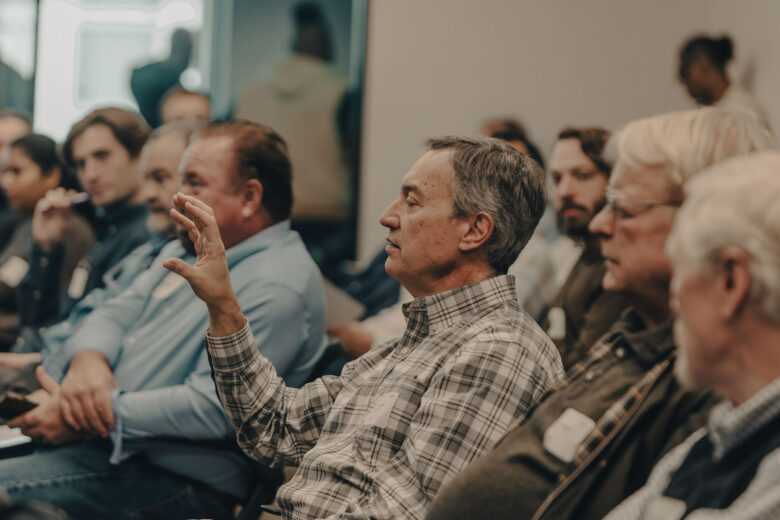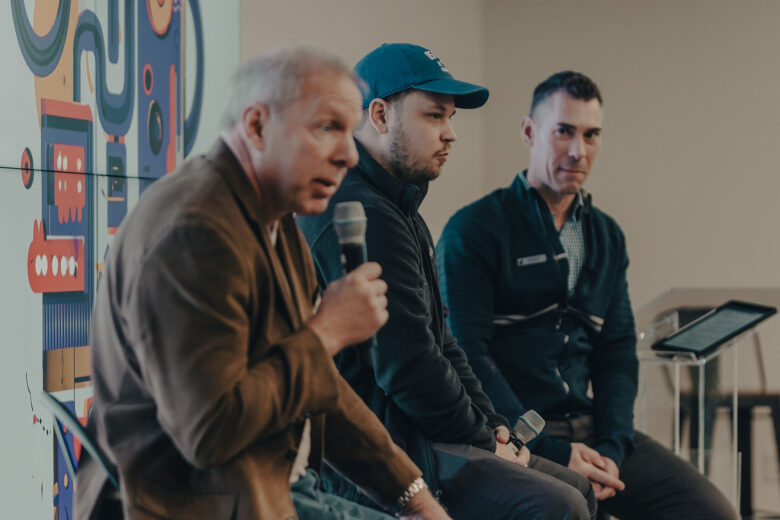Blog
From Ideation to V1
- Blog,
Hardtech continues to gain momentum in Indiana, driven by founders who are transforming prototypes into market ready products. Elevate Ventures has invested deeply in this ecosystem, supporting the innovators who make things that matter, from precision components and smart devices to emerging manufacturing technologies. This session brought together a group of founders who lived the early stage grind of validating an idea, securing proof of concept, and building their first viable version.
The conversation, moderated by Nicholas Kuhn, featured Val Salomaki of Edge Sound Research and Steve Booher of AlwaysFull. Each founder brought a distinct perspective: engineering, sound innovation, and consumer product design. Together, they explored what it really means to go from concept to V1 in the hardware world, where timelines are long, failure is expensive, and customer validation can make or break the business.
Session Overview
The discussion opened with a universal truth among hardware founders: building a product isn’t the first challenge, proving that someone wants it is. Salomaki, whose company Edge Sound Research blends vibration and acoustics to create immersive sound experiences, explained how his team spent months testing prototypes before identifying their first real customer segment. “We knew the tech worked,” he said, “but we had to prove it mattered.”
Buhr, representing AlwaysFull, reflected on his experience validating a consumer product idea that merged functionality with design. “It’s easy to fall in love with the solution,” he said, “but you have to love the problem first.” His team used low cost iterations and direct user feedback to refine product features, ensuring that what they built truly solved a customer pain point.
Chapman added an engineering lens, emphasizing that the shift from ideation to V1 is often less about building something new and more about stripping away unnecessary complexity. “The best prototypes are ugly,” he joked, “because they focus on function over form. A prototype’s job is to learn, not to impress.”
Throughout the session, Kuhn pressed the founders on when to transition from prototype testing to production. Their shared answer: only once the prototype consistently performs its core function and customers confirm real demand. Manufacturing too early, they warned, locks in assumptions that may later prove false.
Key Takeaways
- Validate before you build. Your first goal isn’t to manufacture, it’s to confirm that users care about what you’re solving.
- Stay close to your customer. Every successful iteration begins with real world feedback. Engage users early and often, even when your product isn’t pretty.
- Iterate with purpose. Prototyping is about learning, not polishing. Use each round to test a single, measurable hypothesis.
- Balance speed and precision. Moving too fast risks missing key insights; moving too slow drains capital and momentum. Find your rhythm.
- Design for manufacturability from day one. Even at the concept stage, think about materials, sourcing, and assembly so you don’t paint yourself into a corner later.
- Choose early partners carefully. The right engineering and manufacturing collaborators can save months and tens of thousands of dollars.
- Embrace failure as data. Each unsuccessful test narrows your focus and strengthens your understanding of the market.
Why It Matters
This session underscored the grit required to bridge the gap between inspiration and implementation. Hardtech founders in Indiana aren’t just chasing ideas, they’re solving tangible problems in audio engineering, medical devices, mobility, and beyond. The conversation revealed a shared philosophy: validation isn’t a checkbox; it’s an ongoing discipline.
Elevate Ventures continues to invest in founders who embody that discipline. Through funding, mentorship, and connections to Indiana’s deep manufacturing base, Elevate helps turn validated concepts into scalable, real world solutions. As these founders shared, the path from idea to V1 may be steep, but the climb builds the resilience needed for every stage that follows.
Closing Reflection
From validation to V1, Indiana’s founders are proving that success in hardtech is built on persistence, not perfection. Each failure, iteration, and pivot moves them closer to creating products that change industries. Sessions like this highlight why Indiana’s hardtech ecosystem continues to grow, because here, builders don’t just dream, they deliver.




Explore the HardTech & Product Workshop Photo Gallery
Featured News
-
What 2026 Holds for Innovation, Capital, and Startup Momentum in Indiana
Read More -
Independent Audit Clears Elevate Ventures
Read More -
20 Episodes In: A Trip Down Memory Lane with Innovate or Evaporate
Read More -
The Art Of Resonance
Read More -
How To Tell & Sell Your Story
Read More -
Storytelling That Scales: Inside Elevate’s 2026 Workshop Kickoff
Read More